Consumers Tell Packagers, ‘See You in Court’
Recent packaging-related lawsuits take brand owners to task for on-pack claims, package graphics, PFAS in food packaging, and slack fill.

Lawsuits are a fact of life for brand owners — especially large food and beverage companies with deep pockets — and packaging-related litigation based on safety, sustainability, or on-pack claims is growing. Slack fill is a legal target for dry food and dietary-supplement packaging, as well.
In the most recent high-profile case, New York’s Attorney General filed suit against PepsiCo, citing the environmental and public health effects of the company’s single-use plastic packaging.
Overall, “we are seeing an uptick in claims and demands targeting a wide variety of products, including packaging,” says Sheila A. Millar, partner at international law firm Keller and Heckman.
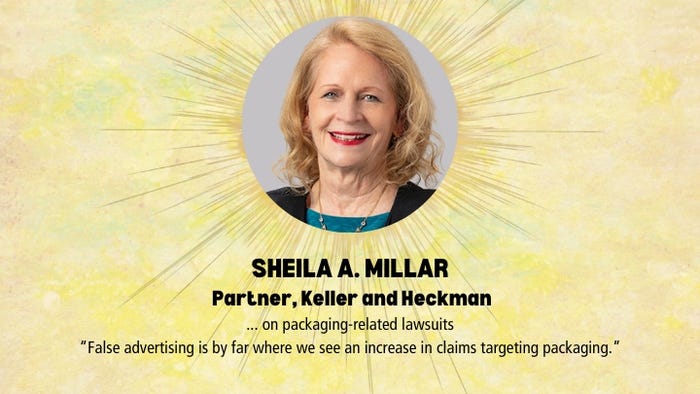
“This seems to be part of a wider litigation trend involving a marked increase in challenges in two areas: privacy and data protection suits, and false advertising claims,” she adds. “False advertising is by far where we see an increase in claims targeting packaging.”
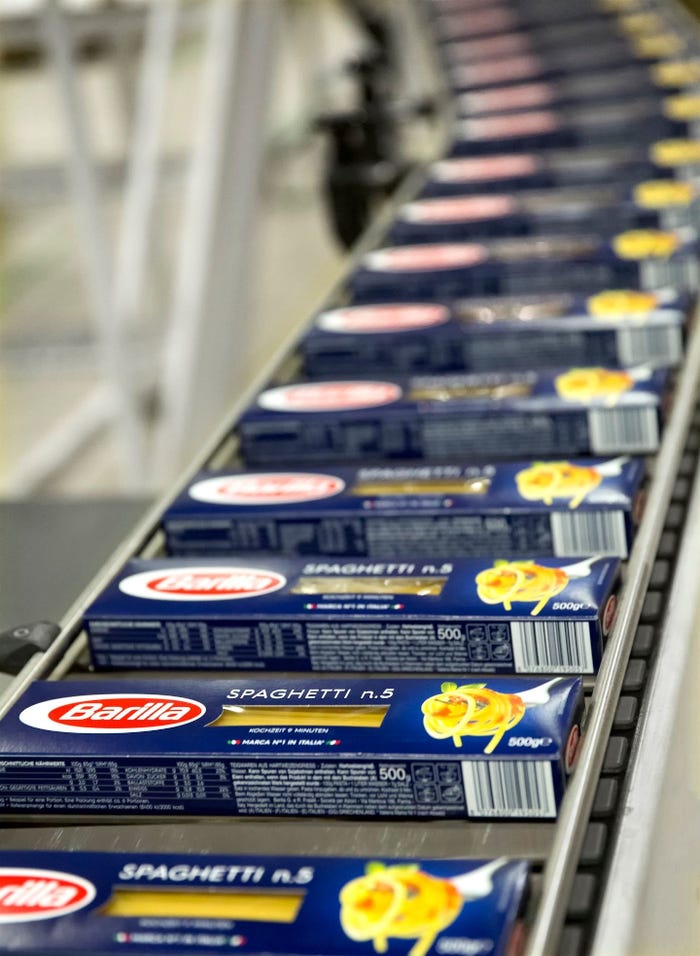
Barilla
A reference to Italy on US pasta packages draws fire.
Barilla has been the target of several lawsuits for an allegedly misleading claim on its pasta packaging, specifically the phrase “Italy’s #1 Brand of Pasta” bracketed with the green, white, and red of the Italian flag.
The first lawsuit targeting the phrase was filed in California in 2022. Plaintiffs in the class action complained that the phrase and colors misled them into thinking the pasta they bought was produced in Italy.
Other class actions, also targeting Barilla’s “Italy’s #1” phrase, were launched against Barilla and Barilla Canada in Illinois and Quebec, respectively, in 2023.
Barilla redesigned its packaging in 2022 to make it more sustainable, and the problematic phrase no longer appears on the brand’s pasta boxes. However, it is not clear whether the deletion was related to the initial lawsuit or simply part of the redesign.
The company’s website is explicit about where Barilla makes its pasta, stating, “Barilla Pasta that is sold in the United States is made in our plants in Ames, IA, and Avon, NY, with a few exceptions. Barilla products made in Italy state ‘Made in Italy’ or ‘Product of Italy’ on the packaging.”
In addition, Barilla’s equipment and pasta recipe are the same in Ames and Avon as they are at the company’s Parma, Italy, plant.
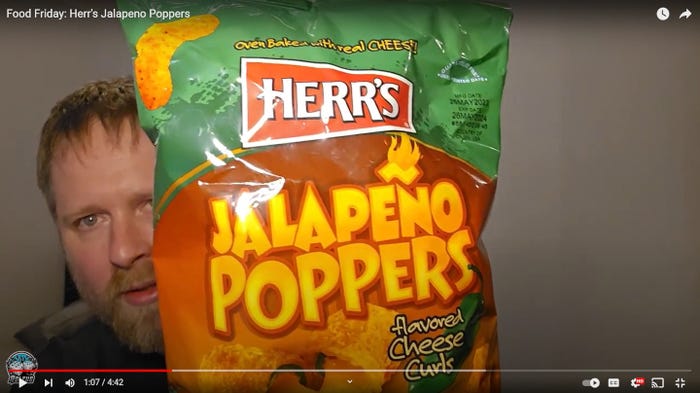
YouTube
Weaponizing package graphics and text.
Another class action — seeking $5 million in damages — targets the text and graphics on a snack-food bag, alleging that the image and language mislead consumers. The defendant in this case, filed in Illinois in 2022, is Herr Foods Inc. The product is Herr’s Jalapeño Poppers Flavored Cheese Curls.
The package graphics include an image of jalapeño poppers, and front-of-pack language exclaims, “Oven baked with real CHEESE!” Of course, the cheese curls do not contain actual jalapeño poppers. Plaintiffs characterize this imagery and text as “false and misleading representations.”
The complaint slams the product’s artificial ingredients as well. It states, “The representations of ‘flavored [cheese curls],’ cheese and/or jalapeños is false, deceptive and misleading by omitting that the Product’s taste is due in part to artificial flavoring. … By representing the Product as ‘flavored cheese curls’ with pictures jalapeño and cheese and these words, consumers will expect the taste is from the identified ingredients and/or natural flavors derived from these ingredients.”
Ingredients listed on the bag include “cheese blend” and “seasoning” containing green bell pepper powder, chipotle pepper, and natural and artificial flavors.
Herr Foods entered a motion to dismiss the complaint in January 2023.
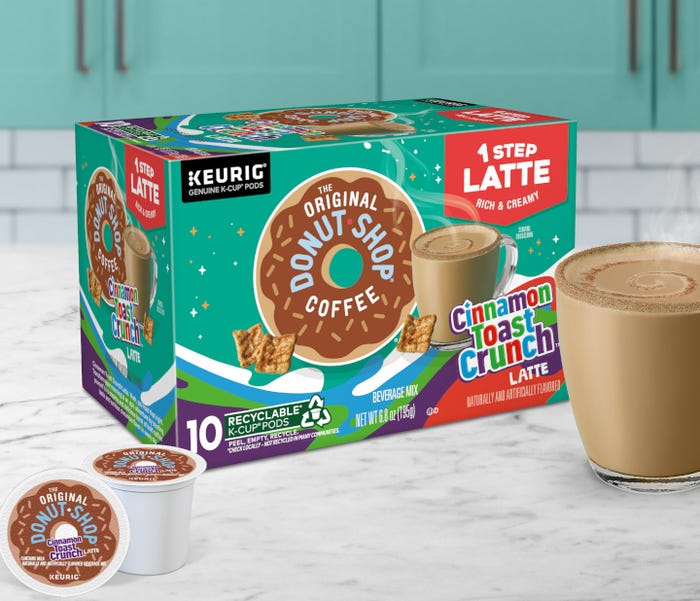
Keurig Dr Pepper
$10 million pay day in Keurig case.
Environmental and sustainability claims are another active area for packaging-related litigation.
“Legal challenges target allegedly misleading claims that packaging products — especially plastic packaging — are degradable, compostable, or recyclable, but also target general claims, like sustainable, among others,” Millar says.
Furthermore, “because false advertising challenges involving food products are also on the rise, it is important to identify claims that appear on packaging and involve the food, rather than claims about the packaging itself, to determine responsibility for the claim and chart a defense path,” she adds.
For example, package claims may say a food is “all natural,” “organic,” or “grown sustainably.” Reasonable consumers would associate those claims with the food rather than the packaging. “In contrast, claims on a package of chips, such as ‘made from paper that comes from sustainably managed forests’ or ‘recyclable,’ logically apply only to the packaging,” Millar explains.
In the category of “recyclable” claims for packaging, she notes “there have been both some useful court decisions as well as some notable settlements. As is so often the case, results are mixed.”
As an example, in early 2023, Keurig Dr. Pepper settled a false-advertising lawsuit regarding claims that its single-serving, polypropylene coffee pods are recyclable. In the settlement, the company agreed to pay out $10 million to the class action’s participants.
Keurig Dr. Pepper is also printing a “Check Locally — Not Recycled in Many Communities” disclosure on its pod packaging as part of the settlement. The disclosure is placed near any claim indicating the pods are recyclable.
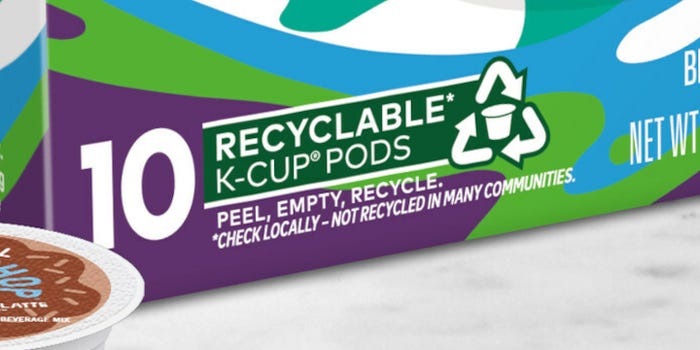
Keurig Dr. Pepper
“Even though the pods were made of polypropylene, one of the more commonly recycled plastics, plaintiffs alleged that the pods are not in fact recyclable at all due to their small size, composition, and a lack of a market to reuse recovered pods,” Millar says. “The judge refused to grant a motion to dismiss, and ultimately the parties settled.”
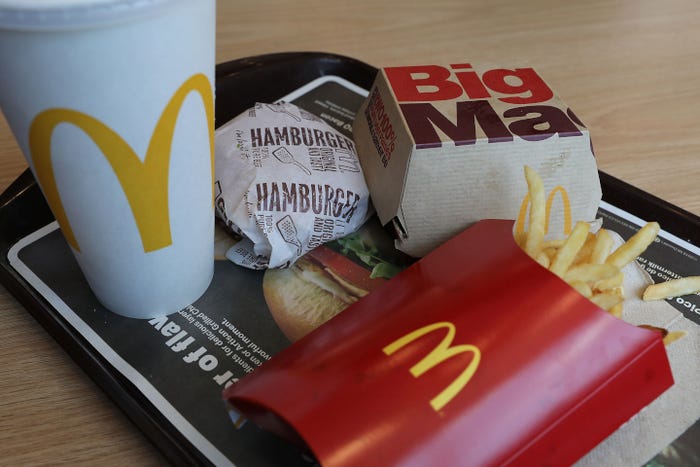
Joe Raedle / Staff / Getty Images News via Getty Images North America
PFAS emerges as a packaging safety issue.
Health/safety is another focus for legal complaints against packaging, particularly food wrappers and containers. Lawsuits centering on the environmental and health/safety risks of per- and polyfluoroalkyl substances (PFAS), or “forever chemicals,” fall into this category.
Studies indicate exposure to PFAS may adversely affect pregnant women and children, increase the risk of some cancers, reduce immune response, interfere with hormones, and boost cholesterol levels and the risk of obesity.
“In some cases — particularly for packaging or products that contain PFAS or other chemicals, complaints and demands involve ‘false advertising by omission,’” Millar says.
“Such a complaint will include a count detailing an alleged failure to disclose the presence of a potentially hazardous or harmful ingredient, or allege that the presence of a chemical renders other environmental claims false and misleading,” she adds.
Two class actions in the fast-food industry, both targeting PFAS in food packaging, launched in spring 2022. The defendants in the cases are Burger King and McDonald’s.
In the Burger King case, plaintiffs claim the Whopper, aka the Product, “is unfit for human consumption because the packaging in which it is contained — and is essential and integral to delivering the Product to the consuming public — contains unsafe per- and polyfluoralkyl substances (“PFAS”).”
The same complaint further alleges that plaintiffs “suffered a substantial injury by virtue of buying the Product that they would not have purchased absent Defendant’s unlawful, fraudulent, and unfair marketing, advertising, packaging, and omission about the defective nature of the Product.”
Separately, the McDonald’s complaint states, “Due to the representations and omissions perpetuated by McDonald’s, Plaintiffs … were misled and deceived. … Plaintiffs contend that, had they known the products contained harmful PFAS, they would not have purchased the products or would have paid less for them.”
In March 2023, the judge responded to McDonald’s Motion to Dismiss and arguments regarding improper venue by transferring the entire action from the US District Court in the Southern District of Illinois to the Northern District of Illinois, the location of McDonald’s Chicago headquarters.
PFAS packaging regulations are rapidly promulgating at the state level. As of September 2023, 12 states had enacted laws pertaining to PFAS in food packaging and 12 more had legislation pending.
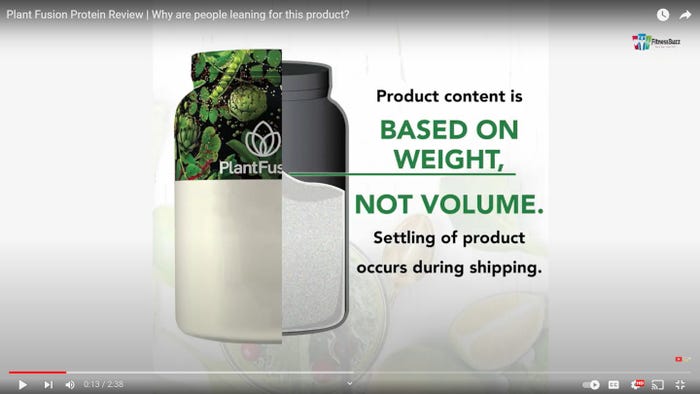
YouTube
Slack fill: Intentionally deceptive or not?
Another area of packaging-related litigation is slack fill, in which consumers claim packagers are intentionally deceiving them about how much product is in a container.
A slack fill complaint against Reliance Vitamin, originally filed in 2022, alleged that the company “misleadingly packages and sells its protein powder in containers that are unnecessarily large and contain unlawful ‘slack fill.’”
The product, PlantFusion vegan protein powder, is sold in an opaque jar, and consumers can’t see how much powder is in the container when they buy it.
The judge initially dismissed the case. However, after the plaintiff provided an amended complaint in early 2023 noting that competitive protein powders use packaging techniques such as fill lines and clear packaging to dispel consumer confusion regarding fill, the judge decided the slack fill class action against Reliance Vitamin could move forward.
About the Author(s)
You May Also Like




